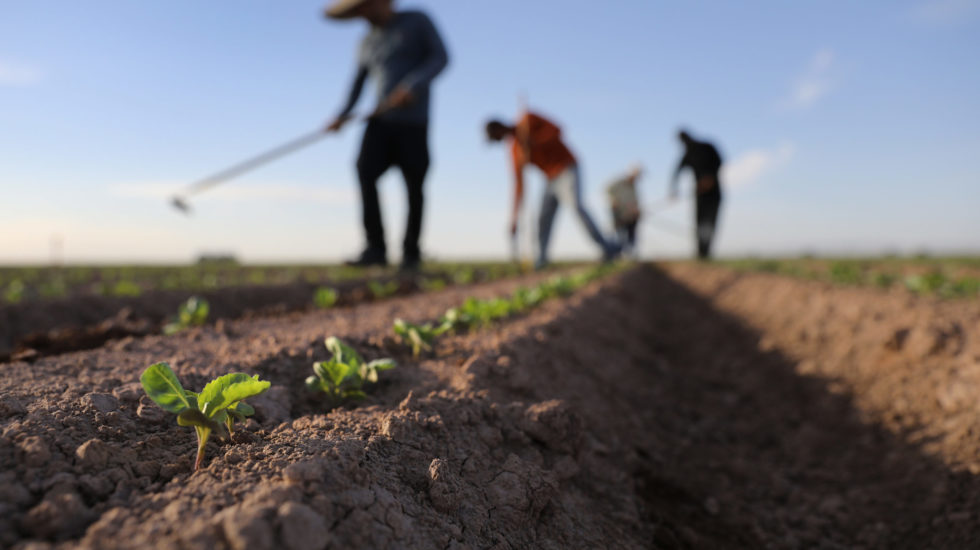The ever-expanding Covid-19 coronavirus pandemic now threatens to disrupt a key link in Americans’ food supply chain.
In an effort to stop cross-border spread of the virus, on Wednesday the U.S. embassy in Mexico City halted processing of new applications for the federal guest worker program known as H2A. Only workers who were previously interviewed and approved will be allowed to enter the country.
In a conference call on Tuesday, Agriculture Secretary Sonny Perdue told producers that U.S. consulates would continue to process applications from returning guest workers, who comprise about 40% of American farm needs, according to Dave Puglia, president of the Western Growers Association (WGA), which represents food producers in California, Arizona, New Mexico and Colorado.
But up to 60% of prospective guest workers are considered new applicants.
“Under the new restrictions, American farmers will not have access to all of the skilled immigrant labor needed at a critical time in the planting season,” Zippy Duvall, president of the American Farm Bureau Federation, told Bloomberg News. “This threatens our ability to put food on Americans’ tables.”
Seasonal farm workers from south of the border who receive H2A visas do much of the hard work of planting, weeding and harvesting crops — especially fruits and vegetables — on American farms.
“Foods likely to be impacted in the near term include leafy greens, celery, broccoli, cauliflower, radishes and melons,” the WGA’s Puglia told Reuters.
And there’s an even bigger concern for the U.S. food industry, reports NPR: what happens when farm workers from other countries test positive for Covid-19?
“Vegetable growers are considering policies that would require quarantine for everyone who worked in close proximity to the infected person,” Reuters says.
“That could easily include two dozen or more people. Workers on H-2A visas often live together, sharing kitchens and bedrooms and traveling together on buses.”
“The virus could spread quickly, and measures to stop it will be extremely costly.”



